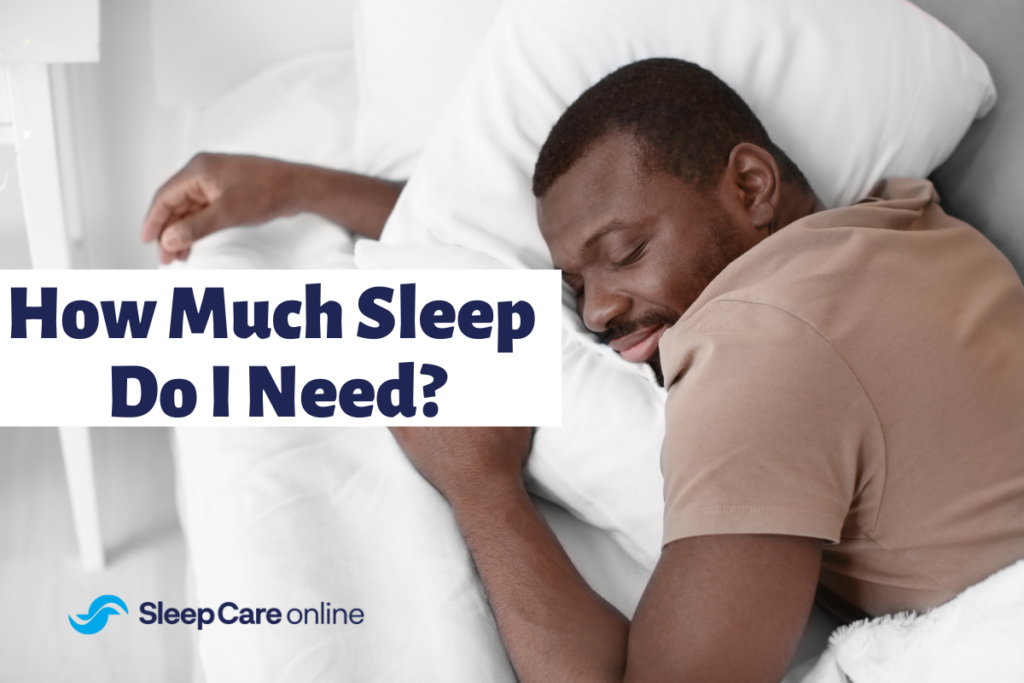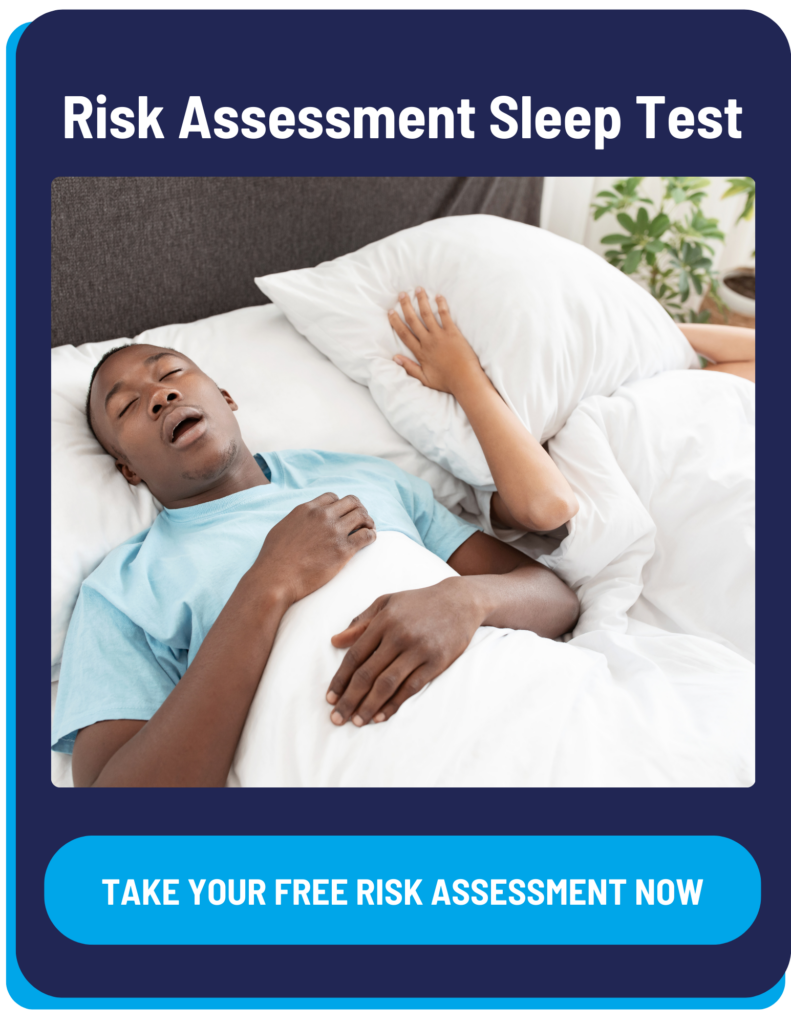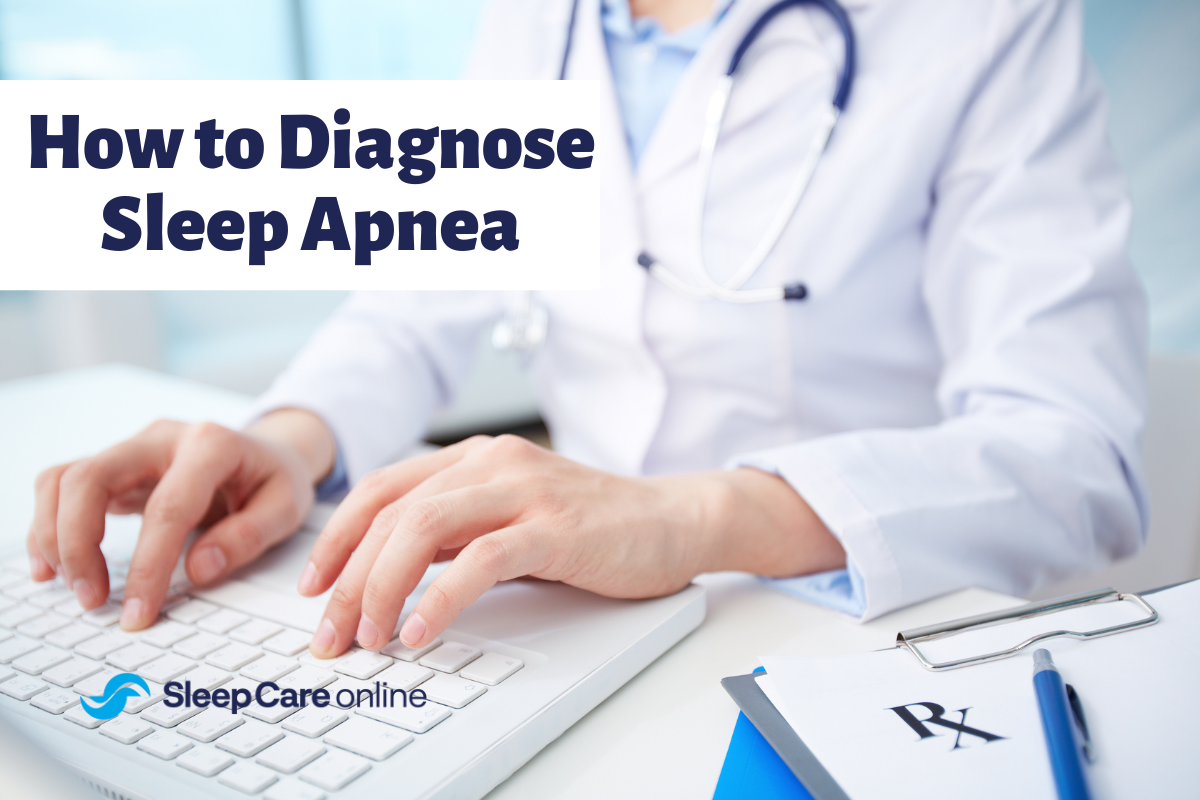Key Takeaways:
- Sleep is important for your overall health and well-being. That’s because it helps your body support healthy brain function and maintain physical health.
- The hours a person needs to sleep varies by age and activity, but sleeping at least 7 hours every night is ideal for those who are 18 years and older.
- For those who wake up feeling fatigued even after a full night’s sleep, there may be some other underlying issues, like a sleep disorder, that interrupts deep sleep and can also cause other health problems.
Sleep needs vary from person to person, but there are some basic guidelines that can be followed to ensure you are getting enough sleep.

Why is Sleep Important?
Along with a healthy diet and exercise, sleep is a critical, and often overlooked, component of a healthy lifestyle. A restful sleep leaves you more productive during the day with improved concentration, higher energy levels, and better coordination. Conversely, poor sleep can increase the risk of heart disease, and depression and weaken your immune system. In addition, you are also more likely to gain weight and may actually eat more when you are not getting enough sleep.¹
How Many Hours of Sleep Do You Need?
The recommended guidelines for healthy sleep vary by age. Newborns require the most sleep with a recommended 14 to 17 hours whereas older adults require between 7 and 8 hours.² Here is a complete breakdown:
- Newborns (0–3 months): 14–17 hours
- Infants (4–12 months): 12–16 hours
- Toddler (1–2 years): 11–14 hours
- Preschool (3–5 years): 10–13 hours
- School-age (6–12 years): 9–12 hours
- Teen (13–18 years): 8–10 hours
- Adult (18–60 years): 7-plus hours
- Adult (61–64 years): 7–9 hours
- Adult (65+ years): 7–8 hours
How to Find Out if You Are Not Getting Enough Sleep?
For those who feel groggy or fatigued after a full night’s sleep, you may not be getting enough restful, deep sleep. Deep sleep allows the body to recover and is directly linked to daily performance and personal health. However, untreated sleep disorders, like obstructive sleep apnea (OSA), can interrupt deep sleep. In OSA, sleep is repeatedly interrupted by apnea episodes or periods of paused breathing where oxygen flow is blocked due to a collapsed airway.
Left untreated, OSA can affect daily performance including the ability to focus or concentrate, fatigue, and daily migraines. Long-term health complications include heart disease, insulin resistance, and stroke, to name a few.
To find out if sleep apnea is impacting your health, purchasing a Complete Care Package from Sleep Care online is the first step. Here is how it works:
- With the Complete Care Package, schedule a 10-minute telehealth visit with a healthcare provider to discuss your symptoms, upcoming sleep study, test results, and treatment options.
- A multi-night, disposable home sleep apnea test is mailed to your home to be completed at your convenience.
- A physician analyzes the sleep data and provides a prescription if needed.
- Schedule an optional follow-up appointment (additional fee applies).
- We connect you to sleep experts who can offer customized sleep therapy options, assistance in equipment purchase, and initial set-up.
What are the Effects of Less Sleep?
You will immediately notice the effects of poor sleep by symptoms in your daily life and some of these symptoms will be compounded over time. You may already be experiencing:
- Memory problems
- Weight gain
- Unexplained headaches
- Issues with cardiovascular health
- Daily fatigue
How to Go to Sleep Fast

Keep a Consistent Schedule. Having a bedtime routine every night helps create habits that let your brain and your body know that it is time to wind down and get ready for bed and fall asleep. It can include taking a warm bath or shower, having tea, reading a book, and more.
Avoid Electronic Screens. Blue light emitted from a television, tablet, or smartphone can hinder you from falling asleep because it blocks melatonin – the hormone that regulates circadian rhythms. Avoid using electronic screens before bed so that can you fall asleep more quickly.
Use a Weighted Blanket. Weighted blankets have a calming effect that can help you fall asleep faster. This type of blanket can weigh 5-25 pounds and helps you relax.
Meditate. Mindfulness meditation can help you fall asleep faster because of how relaxed you become during this form of activity. When meditating before bed, it can reduce anxiety and make easily drift off to sleep.
References
- Markwald R, Melanson E, Smith M, et al. Impact of insufficient sleep on total daily energy expenditure, food intake, and weight gain. Proc Natl Acad Sci U S A. 2013 Apr 2;110(14):5696-5700.
- National Sleep Foundation. How Much Sleep Do We Really Need? Accessed March 2020.




